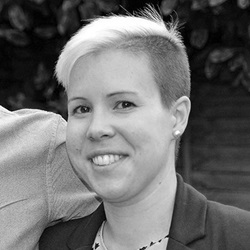In the latest blog in our SCI Mid-Career group series, Dr Jessica Gould, Applications Team Leader of Energy Technologies at Croda International, speaks about finding time for career development and the importance of taking on responsibilities outside her normal job role.
Please tell us about yourself and your career journey.
I started off my chemistry career with a Master’s degree in Chemistry from the University of Liverpool, during which I spent a year working in the chemical industry at Cognis Ltd. Following my undergraduate degree, I began a PhD at the University of Nottingham that looked at developing novel coordination polymers for hydrogen storage as part of the Engineering and Physical Sciences Research Council’s Centre for Doctoral Training in Hydrogen, Fuels Cells and their Applications.
After completing my PhD, I started work at Croda in 2013. I have predominantly worked as a research scientist in the UK Synthesis team, specialising in acrylic polymerisation. However, in early 2020 I changed roles to work as the Team Leader of our Energy Technologies Applications team. This area focuses on developing additives for the renewable energy sector, looking at electric vehicles, EV fluids, wind turbines and battery additives.
What are your keys to managing your career at this stage?
Compared to early career development, where the focus is on learning the key skills required for your job, at a mid-career stage other skills such as networking become more important. I do this by attending events both inside and outside my workplace. I also use various online platforms such as Microsoft Teams and LinkedIn to maintain and foster relationships within my network.
I also think that taking on responsibilities from outside your normal job role is important in managing your career at the mid-stage level. This allows you to continue to learn new skills even if you feel you are well settled in your main role. My manager helps me identify these opportunities and manage them within my current job role. My organisation also provides training courses that allow me to further develop these skills.
What challenges are there around mid-career support?
From my perspective, the challenge around mid-career support is finding time within your existing schedule for career development. People can often feel like they’ve stagnated if it takes a long time to progress or if they see limited job opportunities above them. Training, courses, networks and other experiences can help them learn and feel challenged. These provide an excellent way to maintain development at a mid-career level.
What additional support could SCI give to mid-career professionals?
Mentoring is an excellent way for people to feel supported in their career development. Expanding and continuing our mentoring scheme would be a great way for SCI to support its members.





